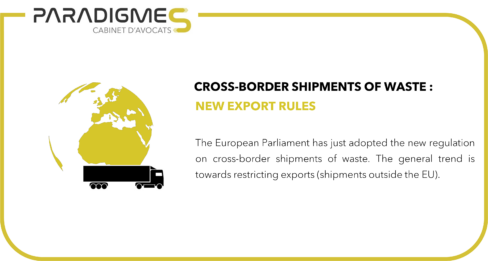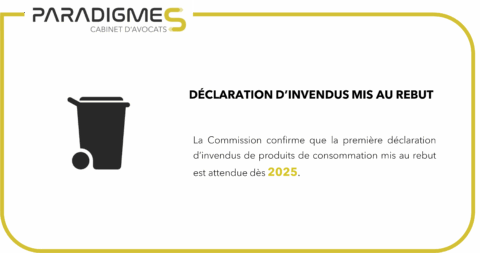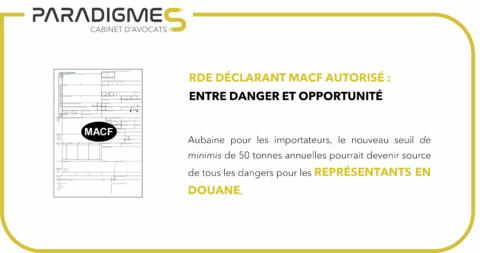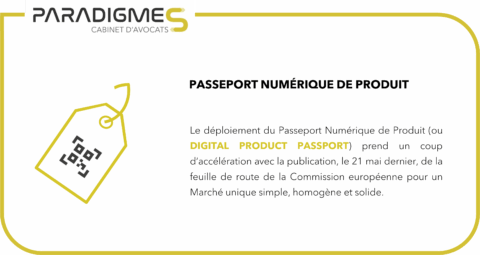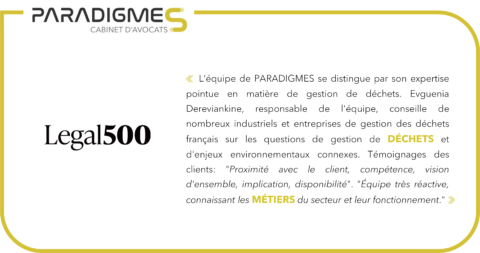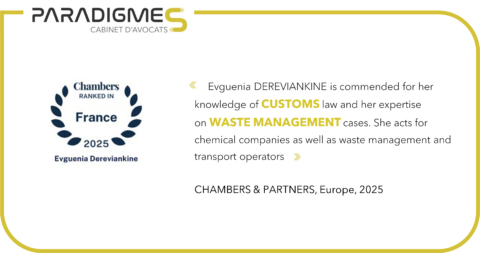The result of the periodic review of the regulations on cross-border shipments of waste (Article 60 of Regulation 1013/2006), the Regulation 2024/1157 published on April 30, 2024 substantially modifies the procedures applicable to cross-border shipments. The trend is towards facilitating intra-EU shipments of waste and restricting shipments outside the EU. There are four main new features for shipments of waste outside the EU:
- Restrictions on waste exports to non-OECD countries
So far, it has been possible to send non-hazardous waste for recovery to non-OECD countries provided that the procedures under which the latter agreed to receive it (notification, information, special controls, etc.) were respected. These procedures were laid down in regulation 1418/2007. This approach will continue to apply only until May 21, 2027.
From May 21, 2027, only countries expressly authorised by the EU to receive European non-hazardous waste for recovery will be able to receive it (articles 41 to 43 of the regulation). To be able to receive European non-hazardous waste for recovery, interested countries will have to submit a specific request to the Commission, justifying:
- the strategy for managing waste generated within their territory (reasons for the lack of recoverable waste produced internally, strategies for collecting and sorting recoverable waste produced internally, impact of imports on the management of waste produced internally, etc.);
- the extent to which the waste treatment conditions employed within the country are in line with European standards;
- the country’s general legal situation and its compliance with the international conventions listed in Annex VIII of the regulation, particularly those prohibiting child labour, etc.
Applications for authorisation to receive European non-hazardous waste for recovery may be submitted from May 20, 2024 (Article 86(3)(b) of the Regulation).
Authorisations issued by the EU will materialise through the inclusion of the country in question in the list of countries benefiting from authorisation to receive European non-hazardous waste, which will be set out by the Commission in a dedicated regulation. This regulation will be regularly updated to take account of new authorisations issued or authorisations withdrawn.
Authorisation applications will have to be renewed by the countries every five years (see article 42(5) of the regulation).
- Restriction of trade in SRF
Solid recovered fuels (SRF), which until now have travelled outside the EU under the notification procedure, will no longer be able to be exported outside the EU, including to OECD countries (see Article 44(2)(f) of the Regulation), from May 21, 2026 (Article 86(2) of the Regulation).
- Restriction of trade in plastic waste
Single-material plastic waste with no more than 2% impurities, classified under code B3011, will no longer be able to travel outside the EU other than under the notification procedure, from May 21, 2026 (Articles 86(1) and 86(3)(d) of the Regulation).
Exports of such waste for recovery in non-OECD countries will be strictly prohibited from November 21, 2026 (Articles 39 and 86(3)(c) of the Regulation). However, this ban may be lifted for a certain number of non-OECD countries from May 2029, provided that countries wishing to receive this waste for recovery notify the Commission and justify that they have the capacity to treat it without danger to the environment (see Articles 40(3)(b) and 42(4) of the Regulation).
Plastic waste classified under code Y48 may only travel to OECD countries, subject to notification procedure (see Articles 4(2) and 41 of the Regulation).
- Prior audit requirement for recovery facilities outside the EU
From May 21, 2027, all waste recovery facilities located outside the EU (including in OECD and EFTA countries) will have to be audited to demonstrate that they are managed in conditions close to the Best Available Techniques (BREF) adopted by the EU in application of Directive 2010/75 on polluting emissions (see Article 46 of the Regulation and Annex X thereto).
The audit obligation will apply to facilities receiving both « green list » and « amber list » waste (including for a simple treatment test) (see article 46(3) of the regulation and its annex X).
The audit must be carried out by an accredited organisation (accreditation in accordance with EU standards or international standards such as ISO 19011:2018 or ISO/IEC 17020:2012) and will consist of a physical and documentary check of the conditions under which the facilities are operated (technologies used, infrastructure used, robustness of the processing chain, documentary traceability, etc.; see Annex X, Part B of the Regulation).
The facilities concerned will only be able to receive waste once they have received the results of such an audit.
The cost of the audit may be shared between several exporters (see Article 46(5) of the Regulation, requiring exporters to share the audits carried out subject to appropriate remuneration, with the Commission keeping a public register of the audits carried out) or it may be borne by the receiving facility. The audit will have to be repeated every two years.
The EU will also be able to conclude bilateral agreements with countries that guarantee a high level of health and environmental protection, exempting their facilities from the prior audit requirement. In any case, shipments will have to be stopped if the exporter receives reliable information indicating that a facility at destination, whether or not subject to a pre-export audit requirement, no longer meets the criteria defined in part B of Annex X of the Regulation. Shipments may only be resumed once an audit has been carried out to demonstrate that the facility is once again in compliance with the Regulation.
Finally, the exporter will have to make available to the public, by electronic means, information on how it complies with its obligation to pre-audit the foreign facilities to which it ships waste.
Changes affecting shipments of waste within the EU are covered under this link.

